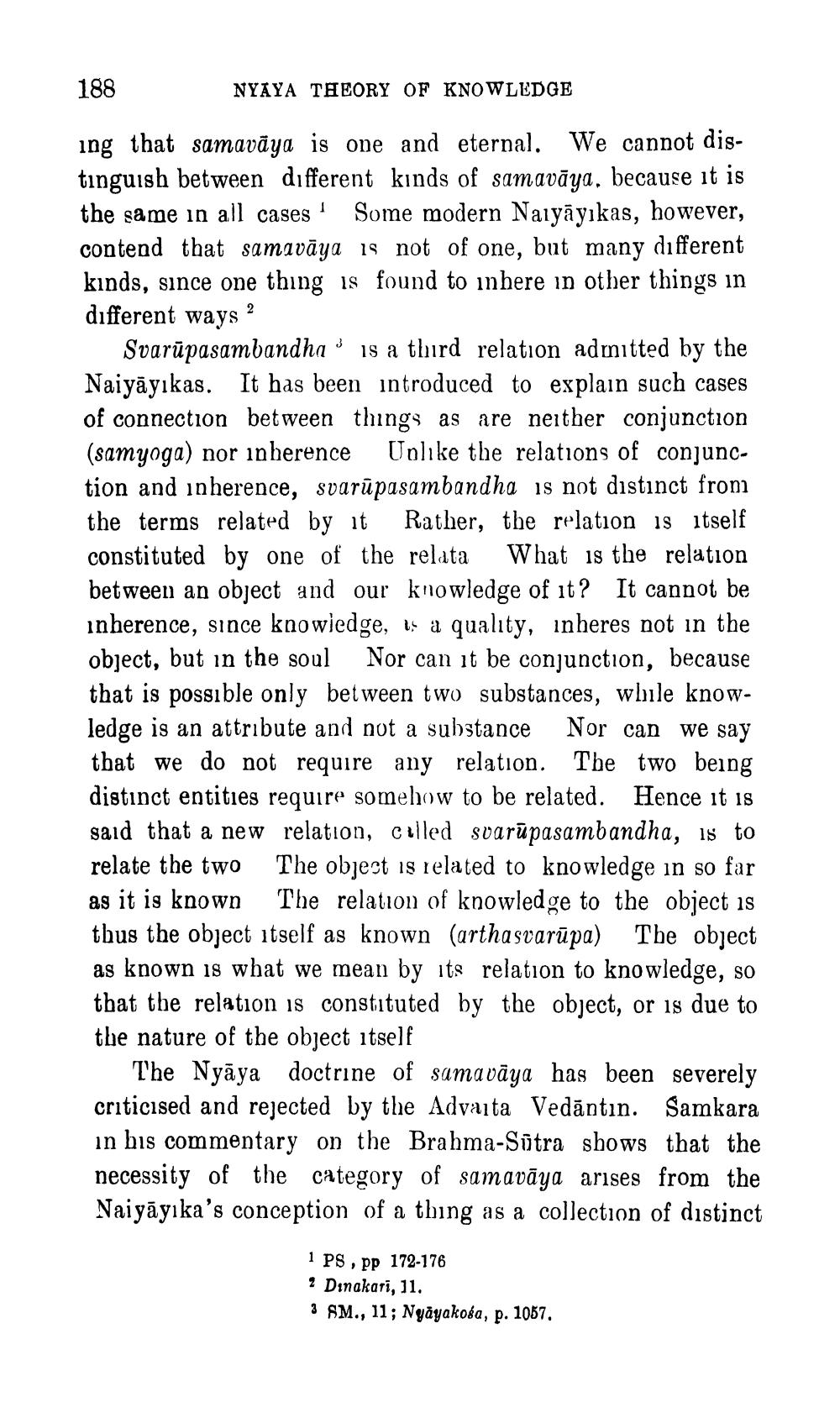________________
188
NYAYA THEORY OF KNOWLEDGE
ing that samavāya is one and eternal. We cannot distinguish between different kinds of samavāya. because it is the same in all cases' Some modern Naiyāyıkas, however, contend that samavāya is not of one, but many different kinds, since one thing is found to inhere in other things in different ways ?
Svarūpasambandha " is a third relation admitted by the Naiyāyıkas. It has been introduced to explain such cases of connection between things as are neither conjunction (samyoga) nor inherence Unlike the relations of conjunction and inherence, svarūpasambandha is not distinct from the terms related by it Rather, the relation is itself constituted by one of the relata What is the relation between an object and our knowledge of it? It cannot be inherence, since knowledge, is a quality, inheres not in the object, but in the soul Nor can it be conjunction, because that is possible only between two substances, while knowledge is an attribute and not a substance Nor can we say that we do not require any relation. The two being distinct entities require somehow to be related. Hence it is said that a new relation, culled svarūpasambandha, is to relate the two The object is related to knowledge in so far as it is known The relation of knowledge to the object is thus the object itself as known (arthasvarūpa) The object as known is what we mean by its relation to knowledge, so that the relation is constituted by the object, or is due to the nature of the object itself
The Nyāya doctrine of samavāya has been severely criticised and rejected by the Advaita Vedāntin. Samkara in his commentary on the Brahma-Sūtra shows that the necessity of the category of samavāya arises from the Naiyāyıka's conception of a thing as a collection of distinct
1 PS, pp 172-176 2 Dinakari, 11. 3 SM., 11; Nyāyakosa, p. 1057.




